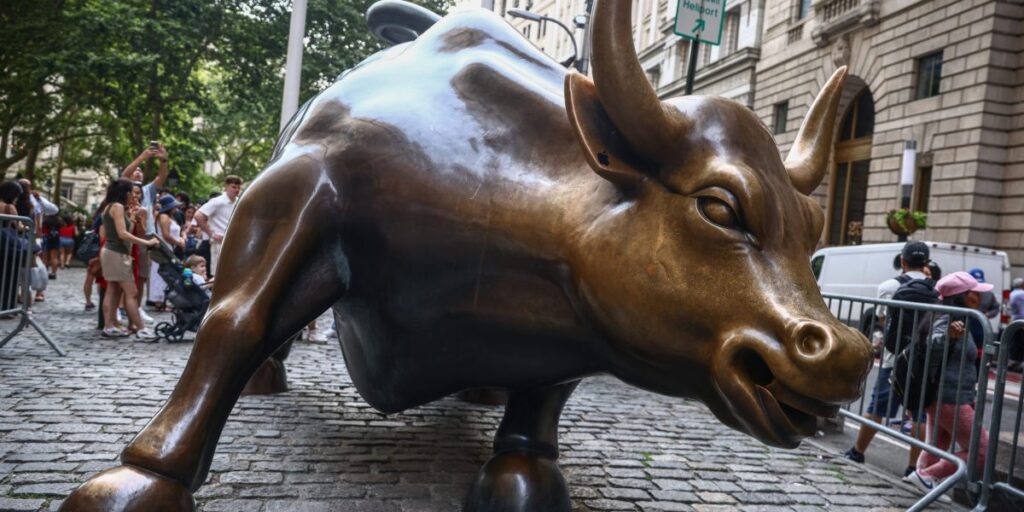
Stocks suffered a brutal bloodbath last week as recession fears grew, but Capital Economics predicts the artificial intelligence craze will continue to lead stocks higher.
The July jobs report released on Friday was unexpectedly weak, and the Institute for Supply Management’s manufacturing index deteriorated sharply on Thursday, sending stocks lower. For the week, the S&P 500 fell 2.5%, the Nasdaq fell 3.6%, and the Russell 2000, which had surged on a shift to small-cap stocks, fell nearly 7%.
At the same time, concerns about economic growth have raised expectations for a more aggressive easing cycle by the Federal Reserve, with Wall Street expecting interest rates to eventually fall by 200 basis points or more.
Diana Iovanel, senior market economist at Capital Economics, said in a note on Friday that stocks should resume their rebound.
“Concerns about a U.S. recession have once again raised the possibility of further rate cuts from the Federal Reserve,” she wrote. “But we don’t think the U.S. economy will hold back stock market gains for too long.”
She added that equity valuations were far from pointing to “economic catastrophe” and credit spreads remained near historic lows. Capital Economics expects the Fed to cut interest rates at every meeting from September to July next year.
Evanel said a recession was unlikely and growth could even accelerate again after a weak period in the second half of the year.
“As a result, we do not expect risk sentiment to deteriorate further,” she said. “As a result, we doubt the economy will stand in the way of the AI-fueled bubble heating up again anytime soon.”
In fact, recent financial reports from Microsoft, Meta and Google show that they spent a total of $40.5 billion in the second quarter on infrastructure, land and chips to support artificial intelligence services. Each company says those numbers will only get bigger next year.
Such spending will likely end up going to AI chip suppliers such as Nvidia, which has seen astronomical growth in revenue and stock prices over the past few years.
Others on Wall Street urged investors not to overreact to the sudden weakness in employment. Claudia Sahm, a former Fed economist who developed the “Sahm Rule” recession indicator, said wealth On Friday, she said she was not currently worried about the U.S. slipping into recession, noting that household incomes were still growing while consumer spending and business investment remained resilient.
Still, Sam, now chief economist at investment firm New Century Advisors, said recent trends in the labor market look weak at best.
“It’s very accurate over time, so it shouldn’t be ignored,” she added, noting that “recessions can develop slowly and then come very quickly.”

